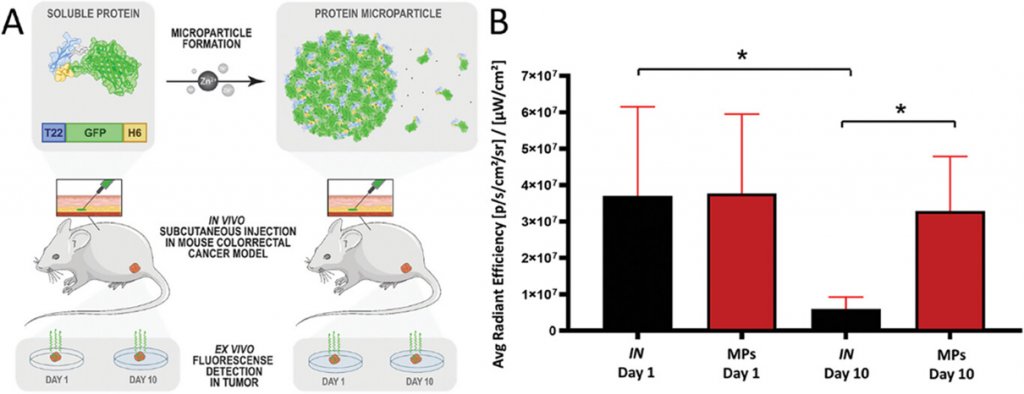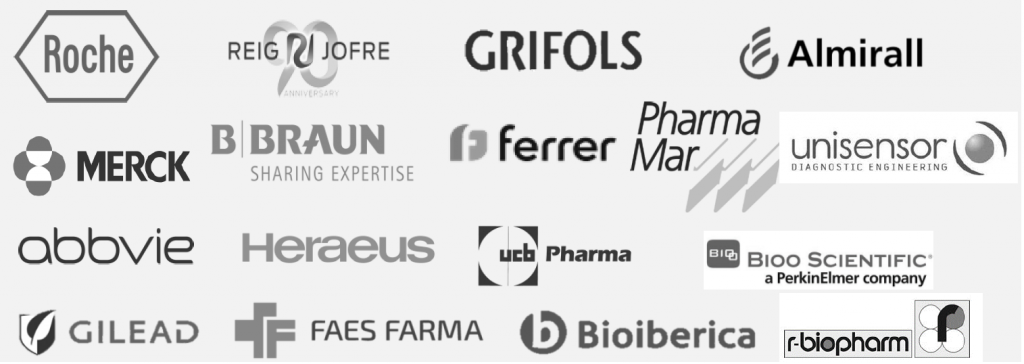
Breakthrough colorectal cancer treatment unveiled by NANBIOSIS Units promises enhanced precision & efficacy in targeted cancer therapies.
March 2024, UAB/Institut de Recerca Sant Pau/CIBER-BBN (Barcelona)
As we leave World Colorectal Cancer Day 2024 behind, marked on March 31st, there have been significant highlights in cancer treatment, a field in which targeted therapies are playing a crucial role.
In this context, researchers from the Nanobiotechnology team, at the Institut de Biotecnologia i de Biomedicina from Universitat Autònoma de Barcelona, led by Prof. Antonio Villaverde, in collaboration with the Oncogenesis and Antitumor Drugs team led by Prof. Ramón Mangues at Institut de Recerca Sant Pau, have made a significant breakthrough in the treatment of colorectal cancer. Their innovative approach, facilitated by their respective Unit 1 and Unit 18 of NANBIOSIS, promises to revolutionize current treatment methodologies and improve patient outcomes.
“In a clinical context, the use of these materials in the treatment of colorectal cancer should greatly improve the drug’s efficacy and patient comfort while minimizing unwanted side effects.”
Prof. Antonio Villaverde, Strategy Director of Unit 1
“It is important to highlight that such accumulation is more effective than when the protein is administered into the bloodstream. This fact offers a new and unexpected way to ensure high local levels of the drug and better clinical efficacy, avoiding repeated intravenous administration regimens,” explains Prof. Villaverde. “In a clinical context, the use of these materials in the treatment of colorectal cancer should greatly improve the drug’s efficacy and patient comfort while minimizing unwanted side effects.”
The team’s groundbreaking research centers around the development of self-contained protein-only materials at the microscale, capable of delivering therapeutic polypeptides in a time-prolonged manner. These materials, resembling the organization of secretory granules within the human endocrine system, are engineered to release functional polypeptide nanoparticles. These nanoparticles can selectively target tumors and destroy specific types of cancer cells, offering a promising avenue for more effective and precise cancer treatment.
The publication:
Notably, the researchers thorougly explored the molecular structure and dynamics of the secretion process of these materials, both in vitro and in vivo. In preclinical trials using an animal model of colorectal cancer, the system demonstrated remarkable efficacy upon subcutaneous administration. This was thanks to the released protein nanoparticles accumulating efficiently in tumor tissues. Importantly, this accumulation was found to be more effective than traditional intravenous administration methods, offering a novel strategy to ensure high local drug levels while minimizing systemic side effects.

Furthermore, several competitive research and technology transfer projects supported this research, as well as intramural CIBER-BBN projects. This further highlights the importance of interdisciplinary collaboration and funding initiatives in driving scientific progress.
The team’s work underscores the importance of continued investment in research and collaboration to tackle the challenges posed by colorectal cancer and other malignancies. As World Colorectal Cancer Day is observed globally, this breakthrough offers hope for a future where innovative treatments pave the way for improved outcomes and enhanced quality of life for cancer patients worldwide.
The successful development of this innovative treatment approach was possible through the collaborative efforts of two NANBIOSIS Units: the Protein Production Platform (Unit 1) and the Nanotoxicology Unit (Unit 18).
References:
[1] J. M. Sánchez, H. López-Laguna, E. Parladé, A. D. Somma, A. L. Livieri, P. Álamo, R. Mangues, U. Unzueta, A. Villaverde, E. Vázquez, Structural Stabilization of Clinically Oriented Oligomeric Proteins During their Transit through Synthetic Secretory Amyloids. Adv. Sci. 2024, 2309427. https://doi.org/10.1002/advs.202309427About NANBIOSIS:
The goal of NANBIOSIS is to provide comprehensive and integrated advanced solutions for companies and research institutions in biomedical applications. All of this is done through a single-entry point, involving the design and production of biomaterials, nanomaterials, and their nanoconjugates. This includes their characterization from physical-chemical, functional, toxicological, and biological perspectives (preclinical validation).
In order to access our Cutting-Edge Biomedical Solutions, place your request here.
NANBIOSIS has worked with pharmaceutical companies of all sizes in the areas of drug delivery, biomaterials and regenerative medicine. Here are a few of them:









